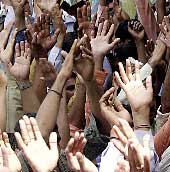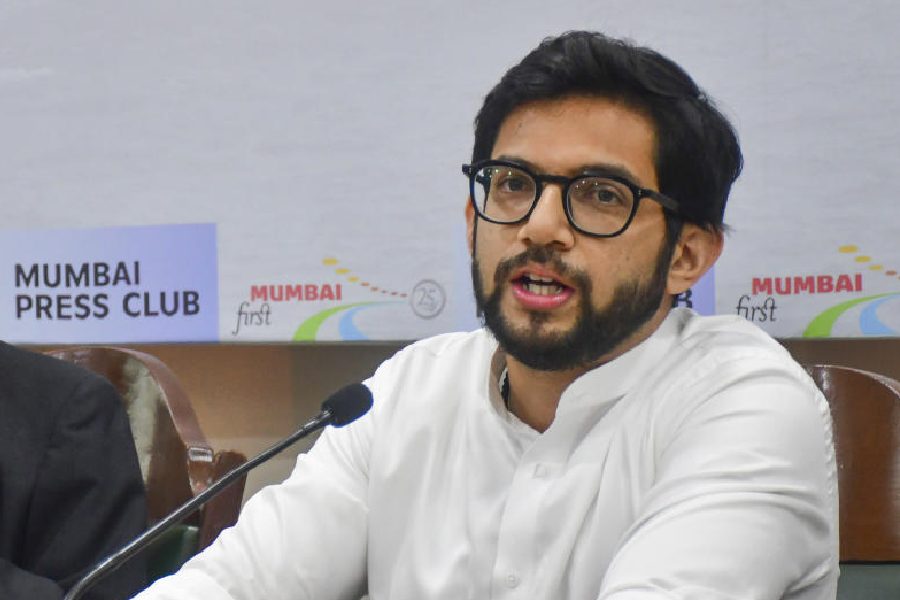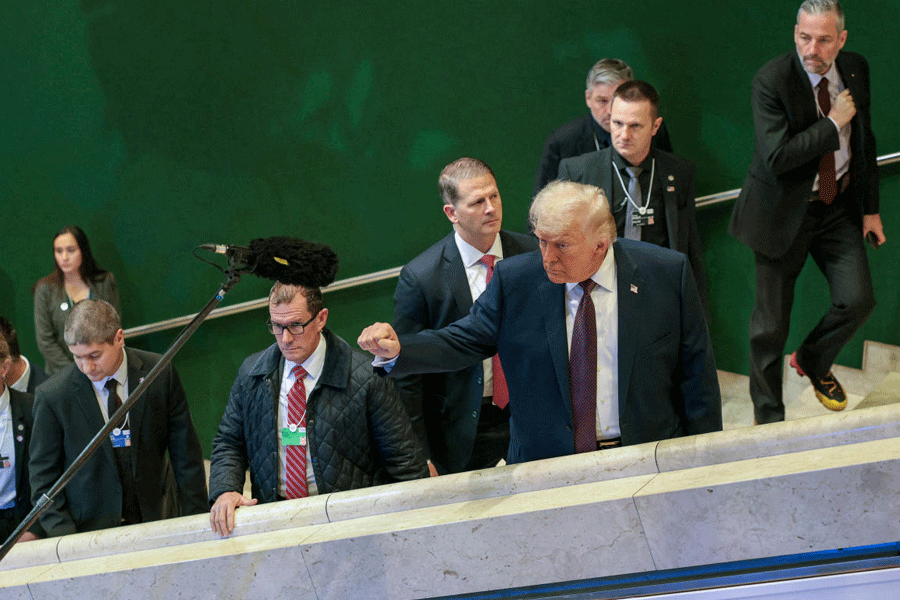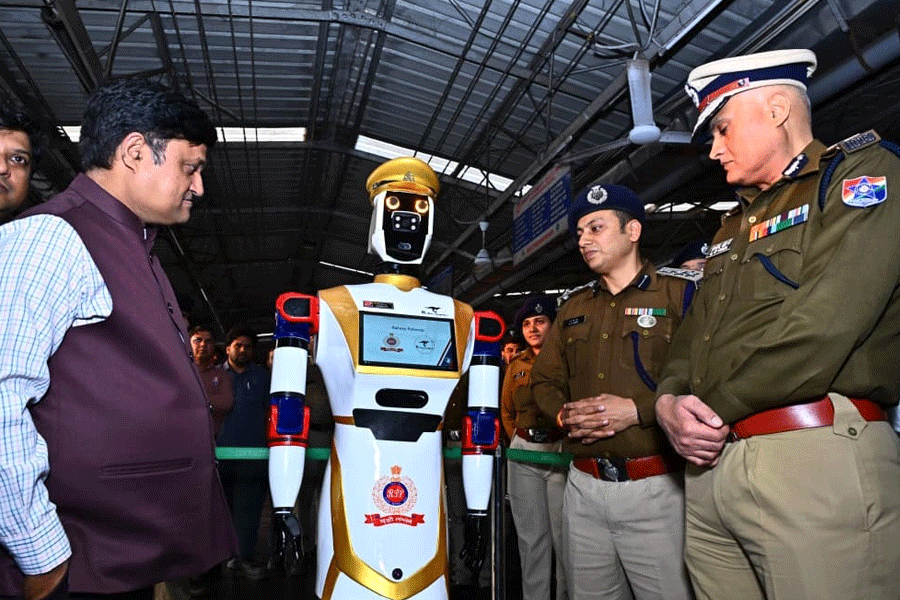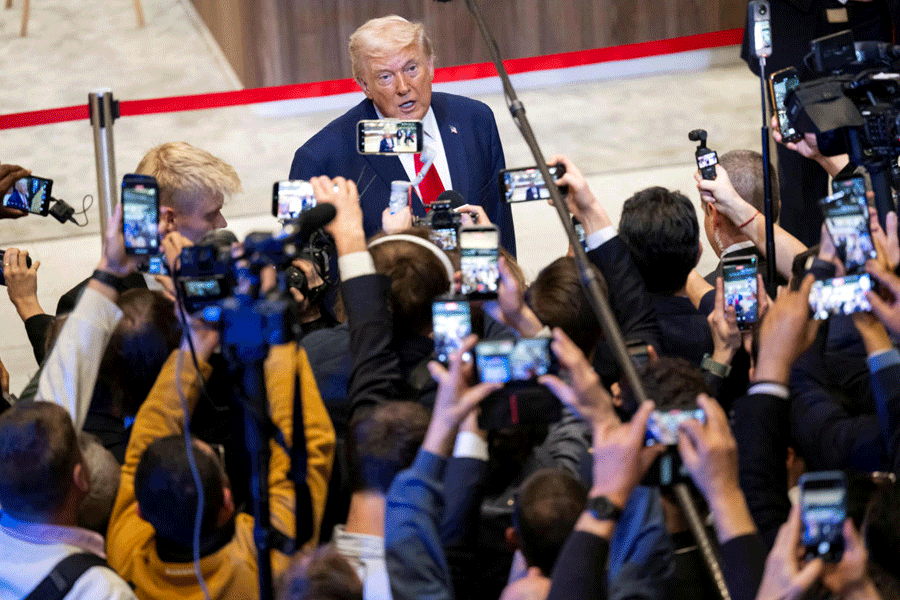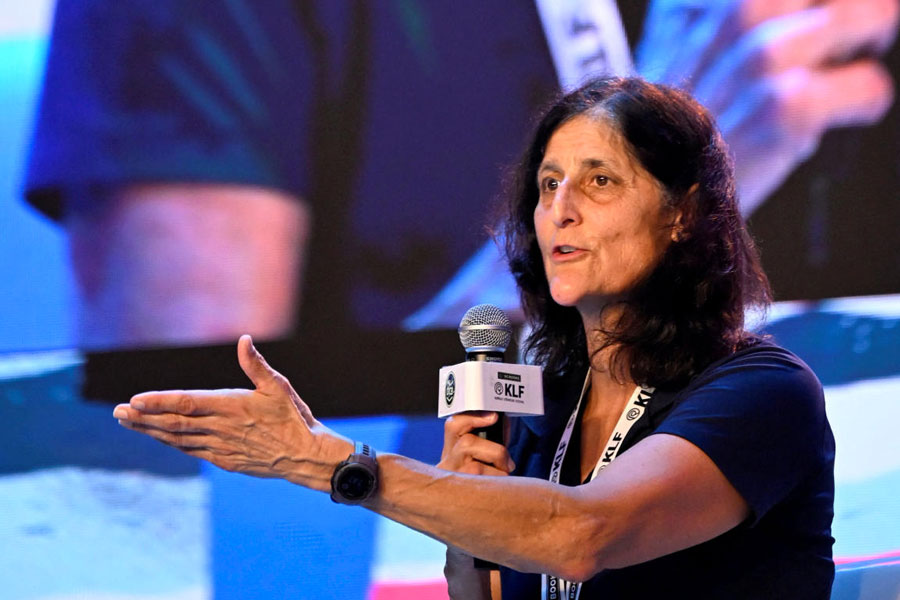|
|
| Rights and resistance |
The Politics of the Governed By Partha Chatterjee, Permanent Black, Rs 495
Does the conceptual vocabulary we use to understand politics allow us to get a grip on what is really going on? Can the range of political formations we are witnessing be neatly described in conventional categories? Take for example the forms of protest Indian politics routinely throws up, from bandhs to street pickets. Our arguments begin to strain the minute we try and determine whether these activities are “legal” or “illegal”. They are not quite legal in the sense that they are often incompatible with the ordering imperatives of the state. The language of rights is of little use in determining their legality. On the other hand, though these activities cannot be fitted within an ordering constitutional framework, we have difficulty in classing them as straightforwardly illegal. They are political expressions of some kind.
The conventional division of the polity into state and civil society does not even begin to make sense of the numerous kinds of associational life characteristic of modern politics. In the conventional view, we act in politics either as republican citizens, or as members of civil society or even as consumers. But much of the process of extracting concessions from the state, blocking its grand designs, involves forms of politics that defy the expectations we associate with these modes of being. As citizens of a republic, we subscribe to the formal fiction that we are all free and equal, the rights we claim unencumbered by the messiness of jostling identities. But nations, as Partha Chatterjee points out in the opening essay of this book, operate in heterogeneous time. The project of creating an abstract rights bearing citizenship is forever an object of contention, in which citizens create political spaces for themselves by drawing upon heterogeneous histories.
One of the central contentions of this book is that modern politics takes the particular forms it does because of the operations of “governmentality”. This complex term, borrowed from Foucault, refers to the complex set of practices by which the state insinuates itself into the life world of citizens, seeking to control them, structure their opportunities, order their affiliations, recast their identities, and work upon them to render them passive, capable of being governed. The central contradiction of modern citizenship is that on the one hand we are citizens, active rights bearing agents; on the other hand we are populations, the object of the state’s pastoral interests. Or to use Kantian language, on the one hand we are ends in our selves, on the other means. Raw materials, as it were, for the grand projects of the state. Democracy, under these conditions, is no longer about self-government in any significant sense. All there is is a messy and complex series of negotiations that happen with the domain of power whose contours are in part determined by modern forms of governmentality. These negotiations do not take place within the legal and formal framework of the state and civil society. Rather, they take place in the domain of what Chatterjee calls “political society”, the realm of negotiation between states and populations that take place through a myriad of movements and informal networks in a more chaotic form. This form of the politics of the governed is a way of creating ethical and political spaces that resist the totalizing ambitions of govern mentality.
The second part of the book is a series of reflections on American imperial ambitions. As the ordering imperatives of the state meet with resistance, so does the ordering ambition of Empire. These essays chronicle this dialectic in clear and morally passionate prose, and make an argument that an American audience, above all, needs to hear more. The section of the book also examines the myriad ways in which the global now comes to structure the local. It includes a deft essay on the prospects of Indian cities becoming bourgeois at last.
In many ways the book has all the virtues associated with Chatterjee’s work: it is learned without being ponderous, theoretical but with a keen eye for politics, critical but admirably unbullying. Though the book is full of brilliant incidental insights, it is difficult to shake off the feeling that the book is a work in progress, an argument struggling to get out. It is a splendid account of some salient forms of modern politics but does not probe its own presuppositions. This can be a virtue in that the tone of the essays collected is ruminative, but in the end these essays strain under a strange kind of anxiety that seems to stop the argument in its tracks in at least three respects. For one thing, the argument of the book often seems strangely ahistorical as it moves seamlessly across the 20th century. While there is a good deal of continuity in the politics of the governed, there are significant disjunctures and departures as well. Although the distinction between political society and civil society is a useful one, the book leaves you with an impression that civil society has largely been eclipsed by political society, a contention that needs more evidence.
Second, many of the important terms in the book seem to hover like abstract anonymous forces. “Governmentality”, for example, in the end operates a bit like the weather, it is everywhere and not under anyone’s control. Third, the book is strangely formalistic. While it is a probing account of the ways in which govern mentality usurps sovereignty, it is less persuasive in its account of resistance. It reminds one a good deal of a simple opposition that Hardt and Negri set up in Empire, between Empire and the multitude. The form rather than the content of politics seems to matter. And finally, Chatterjee tantalizingly raises the crucial question only to drop it. Is there not a serious crisis of representation in modern politics? Chatterjee shows that this crisis is central to understanding the crisis of the state. But paradoxically, the same crisis also afflicts resistance to the state. Who represents anti-imperial politics? In whose name is political society active? It is a measure of the crisis of representation that Chatterjee is reduced to invoking categories like “elite” “popular” or “politics of the governed”. But like Hardt and Negri’s invocation of the multitude, this is a politics strangely bereft of any representative form. It is perhaps both a matter of hope and despair that the question, who governs India, in whose name and by whose authority cannot be easily answered.

